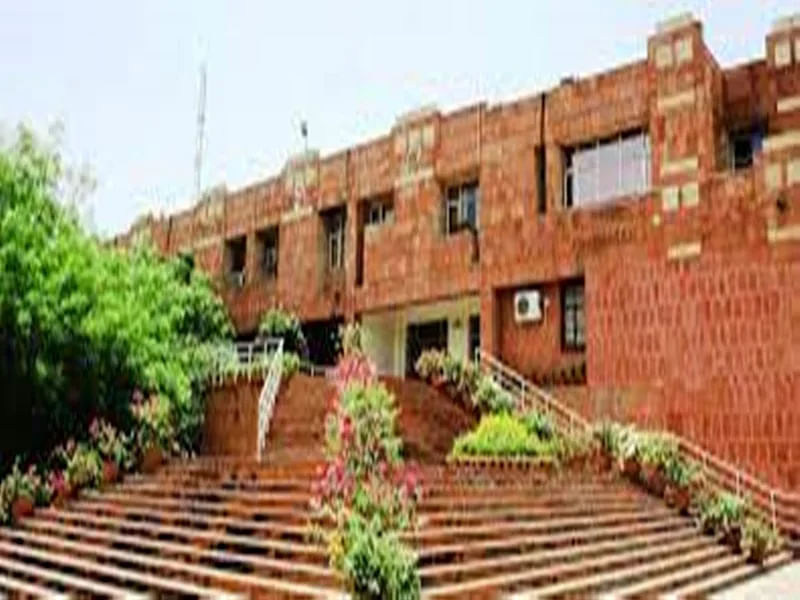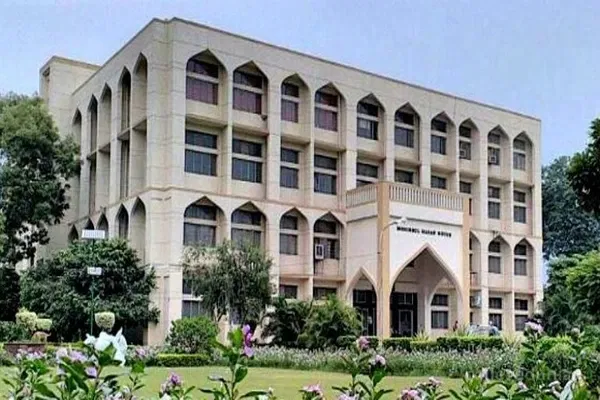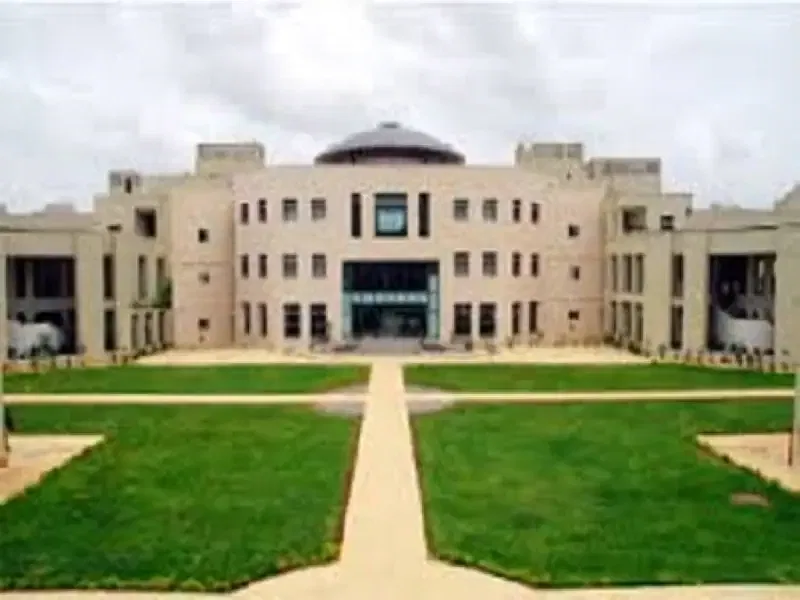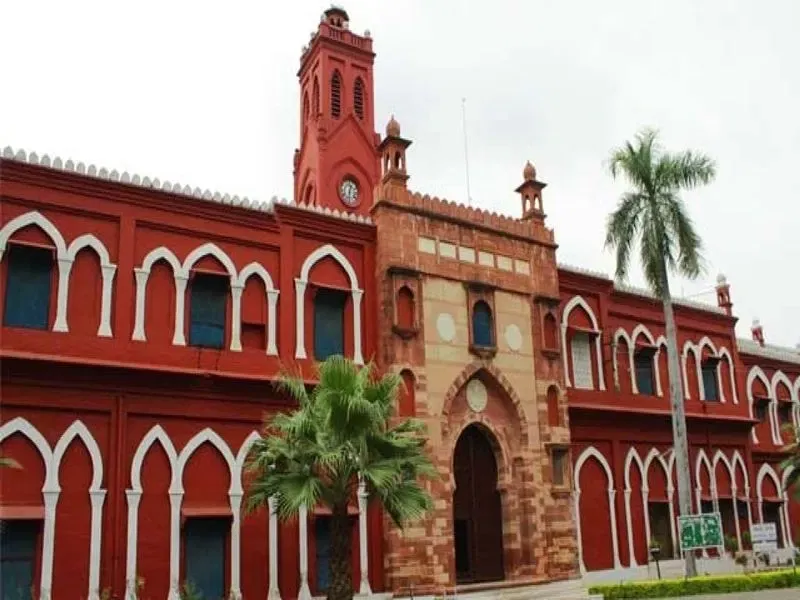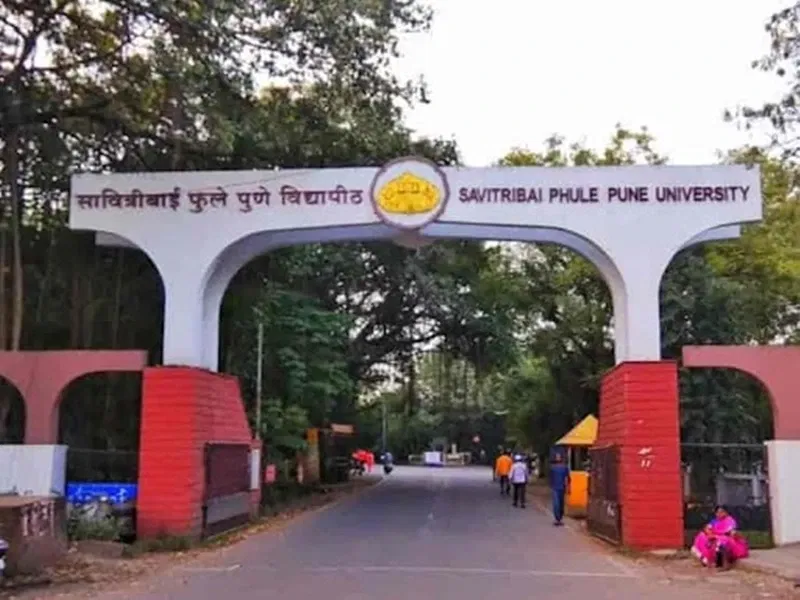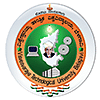MA Political Science Syllabus and Subjects 2026

The MA Political Science syllabus is divided into 4 semesters consisting of core and elective subjects. The course focuses on helping students gain knowledge in core topics like comparative politics, political theory, public policy and administration, research methodology, etc.
In addition to core topics, students can choose elective subjects like environmental politics, gender politics, conflict studies, media and politics, political philosophy, etc. The elective subjects can vary depending on the institution's curriculum, focusing on imparting knowledge on different niches of political science.
The MA Political Science course equips students with skills, and domain expertise through understanding tools and techniques like geographic information systems, policy modeling and simulation, etc.
Table of Contents
Semester Wise MA Political Science Syllabus
MA Political Science syllabus is well-structured in terms of providing substantial insight into the fundamental concepts of political science. The MA Political Science subjects can differ depending on the university/college. A generic view of the semester-wise MA Political Science syllabus is given below:
First Year MA Political Science Syllabus
The MA in Political Science syllabus in the first year helps students understand the fundamentals of classical and contemporary political theories, political systems, their structures, public policies, etc. Below is the MA Political Science 1st year syllabus:
|
M A Political Science 1st Semester Syllabus |
MA Political Science 2nd Semester Syllabus |
|
Western Political Thought (From Plato to Hegel) |
Contemporary Political Theory |
|
Comparative Politics |
Political Ideologies |
|
Modern Indian Political Thought |
International Politics |
|
Liberal and Post-Liberal Political Theory |
Western Political Thought (From Hobbes to Marx) |
Second Year MA Political Science Syllabus
The MA Political Science 2nd year syllabus focuses on advanced and specialized topics like security studies, environmental politics, gender politics, complex political theories, etc. Below listed is the M.A. final Political Science subjects list:
|
MA Political Science 3rd Semester Syllabus |
MA Political Science 4th Semester Syllabus |
|
Public Administration / Indian Constitution |
Politics in South Asia |
|
Conceptual Issues in Political Sociology |
Indian Foreign Policy |
|
International Relations / International Politics |
Regional Politics in India |
|
Electives-I |
Electives- III |
|
Elective-II |
Electives-IV |
|
- |
Research Project Report |
Practical Topics in the Second-Year M.A. Political Science Syllabus
Some of the practical topics in the 2nd-year MA Political Science subjects are given below:
- Policy Analysis
- Research Method Workshop
- Media Analysis and Communication Strategies
MA in Political Science Subjects
The MA Political Science subjects are designed to impart theoretical and practical approaches to contemporary political theories, Ideologies, and scenarios. An MA in Political Science subject aims to sharpen a student's mind to tackle the daily obstacles faced in their workplace. The following is a list of popular MA Political Science subjects:
MA Political Science Core Subjects
The core MA Political Science subjects focus on the complexities of political processes, institutions, and systems, giving students the information and analytical abilities needed to assess and critically analyze political events. Given below are the core subjects of the course:
- Political Theory & Ideologies
- Contemporary Politics
- Indian & Western Political Thought
- Public Administration
- International Relations
- Comparative Politics
- Human Rights
MA in Political Science Elective Subjects
Elective subjects can be chosen according to the aspirant's area of interest, the range of higher education, and potential future job paths. Given below are the elective subjects in the course:
- Theory and Practice of Democracy
- Ancient Indian Political Thought
- International Law
- Public Policy Studies
- Constitutional Development in India
- Theories of Nationalism and Processes of Nation Building
- Strategic Studies in International Relations
- Critical Traditions in Political Theory
- Development Process and Politics in India
MA Political Science Subjects In Detail
M.A Political Science subjects cover a range of topics such as public opinion and public behaviour, comparative politics, international relations, public administration, research methodology, etc. Below listed are a few important MA Political Science subjects:
|
MA Political Science Subjects List |
Topics |
|
Indian Political Thought |
Kautilya, Political Thought of Mediaeval India, Rammohun Roy - Liberal Outlook, Swami Vivekananda - Nation-building and Socialism, Jawaharlal Nehru and Subhas Chandra Bose - Democracy and Socialism, etc. |
|
Comparative Politics |
Institutional and Neo-institutional, Political Systems, Political Development and Modernization, Parties and Party Systems, Pressure Groups, Political Culture, etc. |
|
Western Political Thought |
Machiavelli's theory of Human Nature and Power, Hobbes's Science of Politics & the Reason of the State, Locke: Liberalism, State and Civil society, Nietzsche: Notion of Overman, Rousseau: Critique of Enlightenment, etc. |
|
International Relations |
The Rise and Fall of Inter-Paradigm Debate, Political Realism and Neo-Realism, Critical Theory, Constructivist Theory, Feminism and International Relations Theory, Globalization and International Theories Today, etc. |
|
Indian Foreign Policy |
Determinants of India’s Foreign Policy, India’s National Security Environment, Sino-Indian Relations, India’s Foreign Relations with the Himalayan States, India’s Economic Diplomacy, etc. |
|
International Law |
Three Schools of Thought in International Law: Naturalists, Positivists & Grotian, Laws of the Sea, Laws of Extradition and Asylum, Air Space and Outer Space Law, International Environmental Laws, etc. |
College Wise M.A Political Science Syllabus
Depending on the curriculum and goals of the program, each college may have a different MA Political Science course syllabus. Students can download the M.A. Political Science syllabus PDF from the university website to learn more about the program. The following is a list of the top colleges' MA Political Science programs:
Arunodaya University MA in Political Science Syllabus
The Arunodaya University MA Political Science syllabus focuses on a comprehensive understanding of political theories, ideologies, and systems. Below listed is the Arunodaya University syllabus for MA in Political Science course:
|
M.A. 1st Semester Syllabus Political Science |
M.A. 2nd Semester Syllabus Political Science |
|
Indian Politics Dynamics-I |
Indian Politics Dynamics-II |
|
North East India Politics and Government |
Political Thought -Contemporary |
|
International Politics Theories |
Concept of Contemporary International Relations |
|
Constitutional Development |
State Politics Concepts |
|
Freedom Movement |
Understanding Indian Foreign Policy |
|
M.A. 3rd Semester Syllabus Political Science |
M.A. 4th Semester Syllabus Political Science |
|
Concept of Modern Political Analysis-I |
Sociology of Political System |
|
Polity of India |
Elective-III |
|
Elective-I |
Elective-IV |
|
Elective-II |
Social Sciences Research Methodology |
|
Fundamental of Comparative Political System |
Project Report/Dissertation |
Osmania University MA Political Science Syllabus
The MA Political Science program at Osmania University includes a comprehensive syllabus that covers all aspects of modern and contemporary political thought, human rights and social justice, etc. The list of MA Political Science subjects offered by Osmania University is provided below by semester:
|
M.A Political Science 1st Semester Syllabus |
M.A Political Science 2nd Semester Syllabus |
|
Concept of International Relations-I |
Concept of International Relations-II |
|
Understanding the Indian Political System |
Fundamentals of the Indian Political Process |
|
Political Thought (Western)-I |
Political Thought (Western)-II |
|
Elective-I |
Elective-III |
|
Elective-II |
Elective-IV |
|
Seminar |
Seminar/Workshop |
|
M A Political Science 3rd Semester Syllabus |
M.A Political Science 4th Semester Syllabus |
|
Understanding Indian Foreign Policy-I |
Understanding Indian Foreign Policy-II |
|
State Government Politics Concepts |
Thoughts of Indian Politics |
|
Medieval and Ancient Indian Thoughts |
Research Methodology |
|
Elective-V |
Elective-VII |
|
Elective-VI |
Elective-VIII |
|
Seminar |
Project Work/Viva |
Scheme of Assessment Under MA Political Science Syllabus
The final assessments under the MA Political Science syllabus contain theory exams and internal evaluations through assignments and dissertations. The following table lists the weights for the evaluation criteria associated with the course:
|
Assessment Criteria |
Weightage |
|
Theory Examination |
70 |
|
Internal Assessment |
30 |
|
Total |
100 |
MA Political Science Project Topics
MA Political Science project, known as a mini-thesis, is compulsory for the students to complete at the end of their semester. Students should regard their projects as an ideal opportunity to integrate what they have learned during the MA Political Science program and apply it to their future working profession. Some of the project topics are:
- 21st-Century Indian Journalism
- The Idea of Indian Secularism
- Comprehensive Study on Indian Foreign Policies
- Study on India's Changing International Relations
- The Impact of Social Media on Political Mobilization
- Populist Leaders' Effect on International Relations
MA in Political Science Course Structure
The MA Political Science subjects taught in the course are mostly similar for all the colleges, but they vary depending on the institution's course module. The MA Political Science syllabus doesn't have a compulsory internship but has in-depth study and research work during the entire course period.
A general course structure for the Master of Arts in Political Science is given below:
- IV Semesters
- Literary Theory and Practice
- Core Subjects
- Elective Subjects
- Writing/ Research
MA in Political Science Teaching Methodology and Techniques
The course is designed based on the requirements to acquire exposure in the field, various learning strategies are included in the course ranging from critical annotation and reading to critical media analysis. The following pointer indicates the general structure of the learning process.
- Assignments
- Case Studies
- Simulation and Role-Playing
- Research and Independent Studies
- Seminars and Workshops
- Internships
MA in Political Science Books
MA Political Science books cover a range of topics such as political theory, political economy, public policy, current political issues, etc. Some reference books under MA Political Science curriculum are given below:
|
Name of the Book |
Author |
Topics Covered |
|
Making Political Science Matter: Debating Knowledge, Research, and Method |
Sanford F. Schram; Brian Caterino |
Relevance of Political Science, Historical and Comparative Analysis, Public Engagement and Advocacy, etc. |
|
Economic Development and Political Democracy |
Rajni Kothari |
Political Development Theories, Dependency Theory, Corruption and Governance, etc. |
|
Contemporary India |
Priyadarshini and Chandhoke |
Globalization and Trade, Political Movements and Activism, Contemporary Challenges, etc. |
|
Political Research: An Introduction |
Lisa Harrison |
Content Analysis, Types of Research Conducted in Political Science, Comparative Politics Research, etc. |
|
Ancient Political Thought |
V. Venkata Rao |
Ancient Greek Political Thought Theories, Legacy and Influence, Citizenship and Participation, etc. |
Top MA Political Science Colleges
Top Arts Entrance Exams
MA Political Science Fee Structure
FAQs on MA Political Science Syllabus and Subjects
Q: What is the syllabus for MA Political Science?
Q: Which books to refer for MA Political Science?
Q: What are some good research topics for MA in Political Science?
Q: Which topics are covered in MA Political Science 3rd semester?
Q: Is MA Political Science difficult to pass?
Q: Is Global Governance and Multilateral Diplomacy content available in the MA Political Science syllabus?
